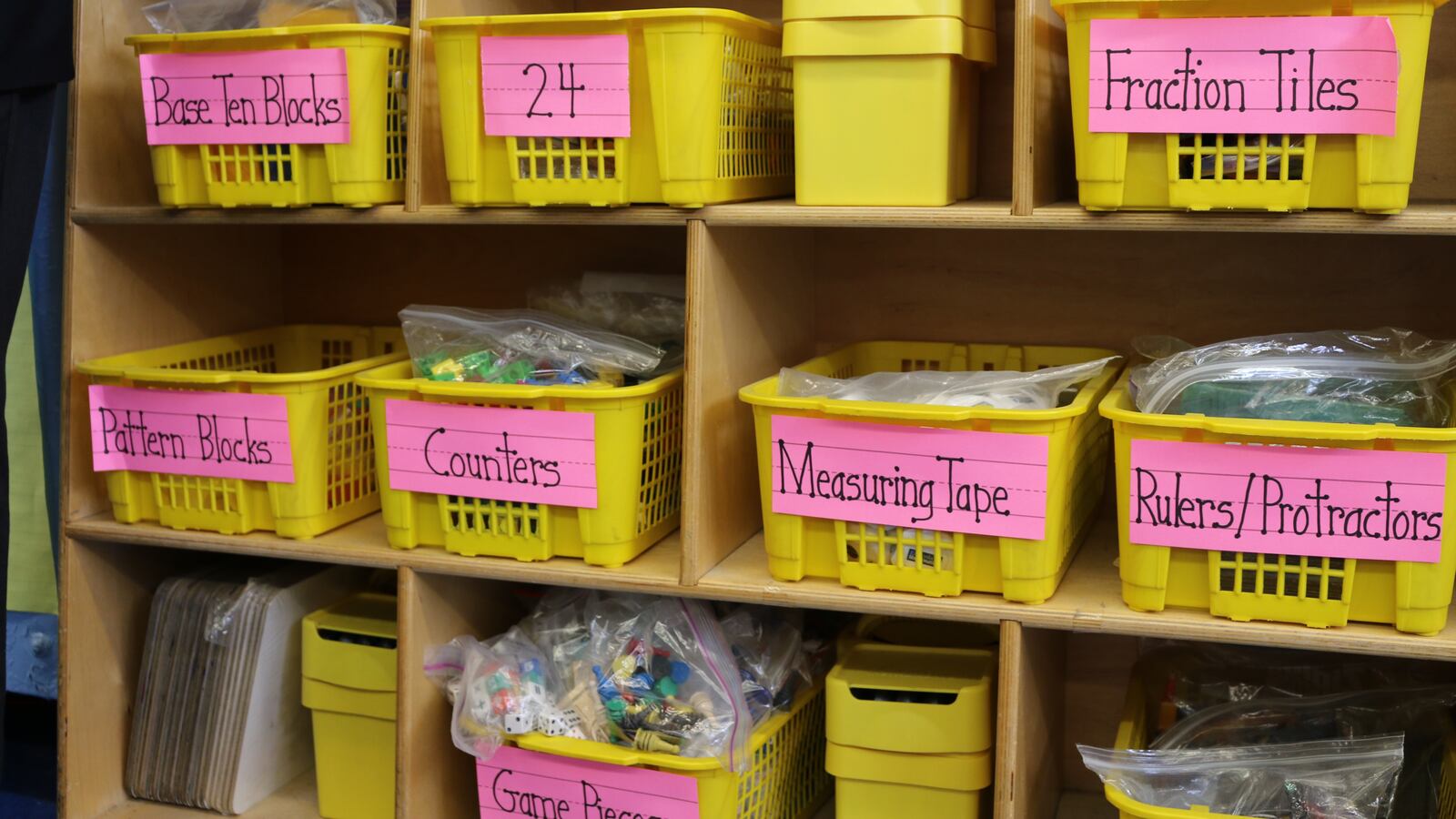In a change that could shift the way elementary schools work across New York City, officials want more fifth-graders to learn math from teachers chosen to focus on the subject, rather than their general classroom teachers.
The city will begin centralizing fifth-grade math next year at interested schools, according to a memo sent to principals this week, and will spread the policy further over the next five years. That memo and other documents posted online for principals describe the change as the first step in the city’s campaign to make sure more eighth-graders are prepared for algebra, a goal Mayor Bill de Blasio unveiled last fall.
“We know this initiative is a big step forward,” an education department document reads, “and are working to develop both the operational and instructional supports schools will need to be successful.”
At most of the city’s elementary schools, core subjects like reading and math are taught by the same classroom teachers. In the memo, officials asked interested principals to designate fifth-grade teachers to take on the central math role for their grade.
Some researchers say quality of math instruction increases with a designated teacher, especially since many elementary-level teachers aren’t excited about math or don’t feel prepared to teach it.
“It’s almost like people who are afraid of math flock to elementary school education,” said Clara Hemphill, one of the authors of a 2015 report from the New School’s Center for New York City Affairs that called for more intensive math teaching in fifth grade.
The introduction of the Common Core standards have added to the complexity of the task. Last year, about 41 percent of city fifth-graders the state’s math exam. Meanwhile, recent statistics show that few are prepared for upper-level math by the time they reach high school.
“With the Common Core, we’re expecting more mathematics understanding from teachers, and this enables districts to focus resources,” said Diane Briars, the president of the National Council of Teachers of Mathematics.
“Departmentalizing” math allows teachers with math anxiety to focus on other subjects, Hemphill said, and leaves those passionate about math to teach it. That’s what happened at the Girls Prep charter schools when they separated math instruction, according to Ian Rowe, the leader of the Public Prep charter school network.
“The folks who are our dedicated math teachers love the fact that they can really dive deep and really focus on not just procedural math but really getting our scholars critical thinking skills in math,” he said.
Some schools have long used or experimented with more specialized approaches. P.S. 183 Robert L. Stevenson and the Lower Lab School, both on the Upper East Side, have separate math instruction, Hemphill said.
Others were surprised that this would be the city’s move to improve math instruction.
Darlene Cameron, principal of STAR Academy-P.S. 63 in the East Village, said she would have questions about placing the responsibility for a grade’s math instruction in the hands of a single teacher, especially since so many students are already far behind when they reach fifth grade.
“Are people looking at the fifth-graders we have today? Many of them are still working on basic, single-digit multiplication,” she said.
It’s unclear how many schools the city would like to include in the new plan. Education department officials said the training would be research-based and that schools can choose to participate.
According to the posted overview of the initial “Algebra for All” initiatives, the first wave of participating teachers will have three days of training this spring, 12 days of training over the summer, and sessions throughout next school year.
To Courtney Allison, the deputy director of Math for America and a former sixth-grade teacher, encouraging schools to departmentalize fifth-grade math is a smart idea that could help make sure students arrive prepared for middle school.
“It’s exciting to see them turn their attention to mathematics,” she said of the city.

